Feel the Obamacore with the Obama library's inaugural artifacts
Plus: To combat election fraud conspiracies, this county puts all its ballots online
Hello, in this issue we’ll look at the first artifacts heading to former President Barack Obama’s presidential library and how one Idaho county just puts its whole election online for the public to see for themselves.
Scroll to the end to see: what may well be the world’s heaviest MAGA hat 🪨
Feel the Obamacore with the Obama library's inaugural artifacts
For Democrats feeling blue since the election, there’s still nostalgia.
Ahead of the 2026 opening of the Barack Obama Presidential Library in Chicago, the library is giving a first look at some of the more than 35,000 artifacts it already has on hand, ranging from Christmas ornaments to heads of state gifts. Staff began processing, inventorying, cataloging, and photographing the objects on Jan. 20, 2017, the day Obama left office, and made them available online this fall on its artifacts collection website. It’s a blast from the past.
There’s a portrait gallery of the former president, with work including a golden “Hope” portrait by Shepard Fairey, and an entire FLOTUS fashion gallery of 213 garments worn by former first lady Michelle Obama. An Affordable Healthcare t-shirt celebrates one of the Obama administration’s most significant achievements while a custom “YS WE CAN” Illinois license plate shows Obama’s campaign slogan over a portrait of fellow Illinoisan President Abraham Lincoln.

The tech that the 44th president used in office is a fun time capsule of very recent history, and includes Obama’s Blackberry, GoPro camera, and Apple iPad Air 2. The presidential iPhone is an iPhone 6 in space gray with black a OtterBox case and presidential seal sticker.
Much has been made of Gen Z voters who are aging into voting and political consciousness in the long Trump era and only know a politics of smashed norms, conspiracies, name calling, and declining trust in institutions. But the story is different for Millennials, a generation that I and many of this newsletter’s readers are a part of.

Many Millennials cast their first ballots for Obama or his Republican opponents, and though the era wasn’t without its own crisis, from the Great Recession’s long recovery to racial injustice, it was also one of possibility, and in retrospect, civility. Obama’s historic campaign ran on hope and change, the late Sen. John McCain of Arizona once defended him as a “decent family man,” and Sen. Mitt Romney of Utah would literally sing “America the Beautiful” a cappella on the stump. Boy Scout shit.
For Millennials, it was a generational political awakening that was far more Parks and Recreation than Celebrity Apprentice or House of Cards, but today, such gestures seem quaint. Obama’s now history, McCain’s dead, and Romney’s retiring, and the incoming president has trashed all three. If you or a Millennial you know has felt particularly politically disoriented the past decade, well, that might have at least something to do with it.
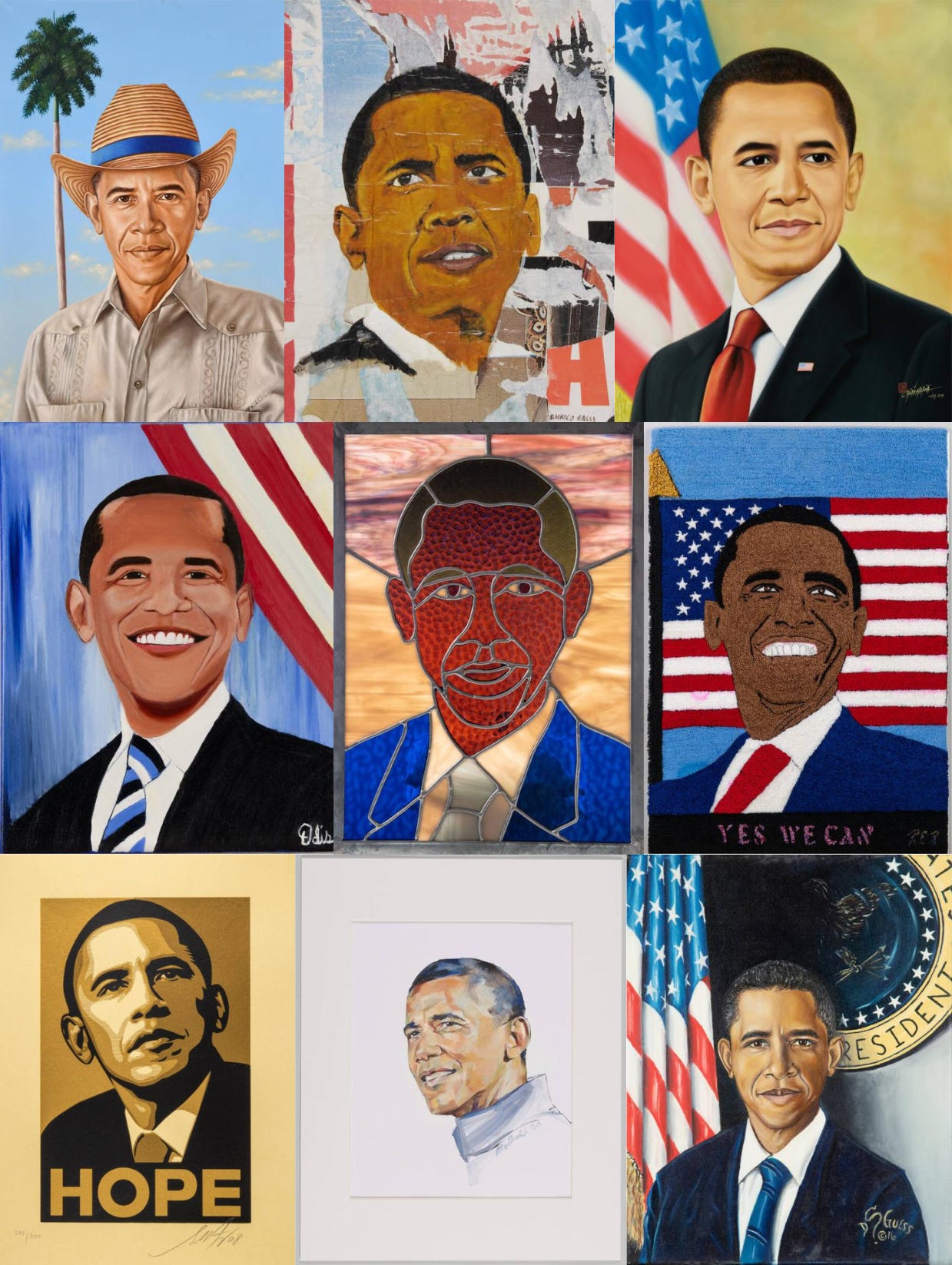
Millennial nostalgia has hit culture at large, and that sentimental feeling some might feel scrolling through the Obama library’s collection is its political equivalent, “Obamacore.” The newfound nostalgia for the Obama era that bubbled up with Vice President Kamala Harris’ 2024 snap candidacy may well be tempered with Harris’ loss, but Democrats looking ahead to 2028 and beyond would be wise to not completely ignore it. There’s power in nostalgia. Until then, we’ll always have yesterday.
To combat election fraud conspiracies, this county puts all its ballots online
In the face of rising skepticism over election results, some elections officials are turning to hyper-transparent procedures to make their elections more open.
Ada County, Idaho, home of the state capital Boise, began making its ballots available for public viewing online after the 2020 election, when President-elect Donald Trump made false claims of widespread election fraud following his loss to President Joe Biden. Today, the public can view scans of every ballot cast in election in the county from 2022 to the 2024 primary on the county’s ballot verifier, and the general election results are expected to be uploaded soon.
It’s an attempt to combat a growing problem. About a quarter of Americans said they were “not too confident” that the votes for president would be accurately cast and counted, according to a September Gallup poll, and 19% said they had no confidence at all, the highest that figure has been since Gallup began polling on the question 20 years ago.
Now people with doubts about local election results in Idaho’s biggest county don’t have to take elections officials’ word for it; they can count the votes themselves. Elections officials in Maricopa County, Arizona, who put their signature verification, early ballot processing, and ballot tabulation center on live video feeds, were making a similar attempt at opening the elections process to the public. These are visual solutions to the problem of conspiracy theories and misinformation, and they’re radically transparent.
Political parties in the U.S. once printed their own ballots, but the “secret ballot,” which voters use to fill out their vote choices in private, is how U.S. voters cast their ballots now. Although who you vote for is secret, the fact that you voted is public record—and Ada County is making use of that. By making the whole election open source, it removes some of the mystery.
The images viewable on the ballot verifier site don’t contain identifying personal information about the voters, but they do contain stray marks and inconsistent scribbles inside the boxes to select certain candidates. It’s a unique view of an election that we’re not used to seeing. This is literally what democracy looks like.
Have you seen this?
2024 revived the question: Do campaigns still matter? Given the resources the Harris-Walz ticket had at its disposal in 2024, practitioners are once again grappling with an old question: can campaigns make a real difference on the ground or are electoral outcomes really dictated by environmental factors? [Campaigns & Elections]
This 30-pound marble MAGA hat costs $48,000. Artist Robin Antar records pop culture in white Carrara marble. The hat is part of a series called “What’s going on in America now.” [Fast Company]
They supported a TikTok ban, but still used the app to win their elections. 23 of the 49 members of Congress who have verified TikTok accounts voted for the “TikTok ban.” [NBC News]
Luxury French clothing brand rips off logo of the New York Young Republicans. The sweatshirt, which French clothing brand Enfants Riches Déprimés sells for $1,399, uses an eagle logo from the 113-year-old Republican group. [New York Post]
History of political design
Press pass to cover Kennedy’s trip to Dallas where he was shot and killed (1963). The press pass sold for $700 at auction, according to the American Political Items Collectors, or APIC.
A portion of this newsletter was published in Fast Company.
Like what you see? Subscribe for more:

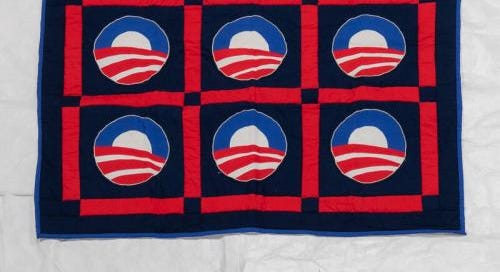


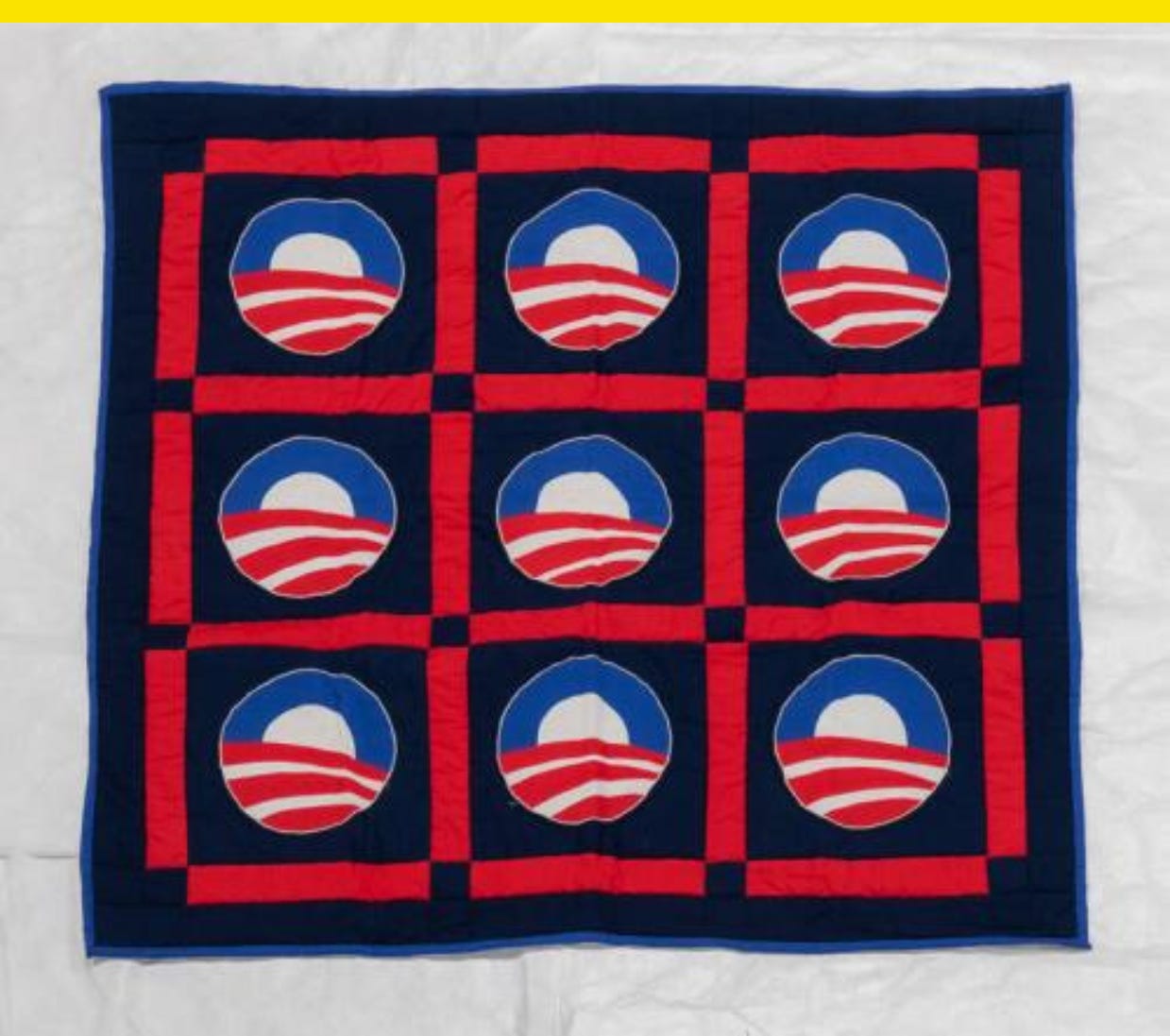

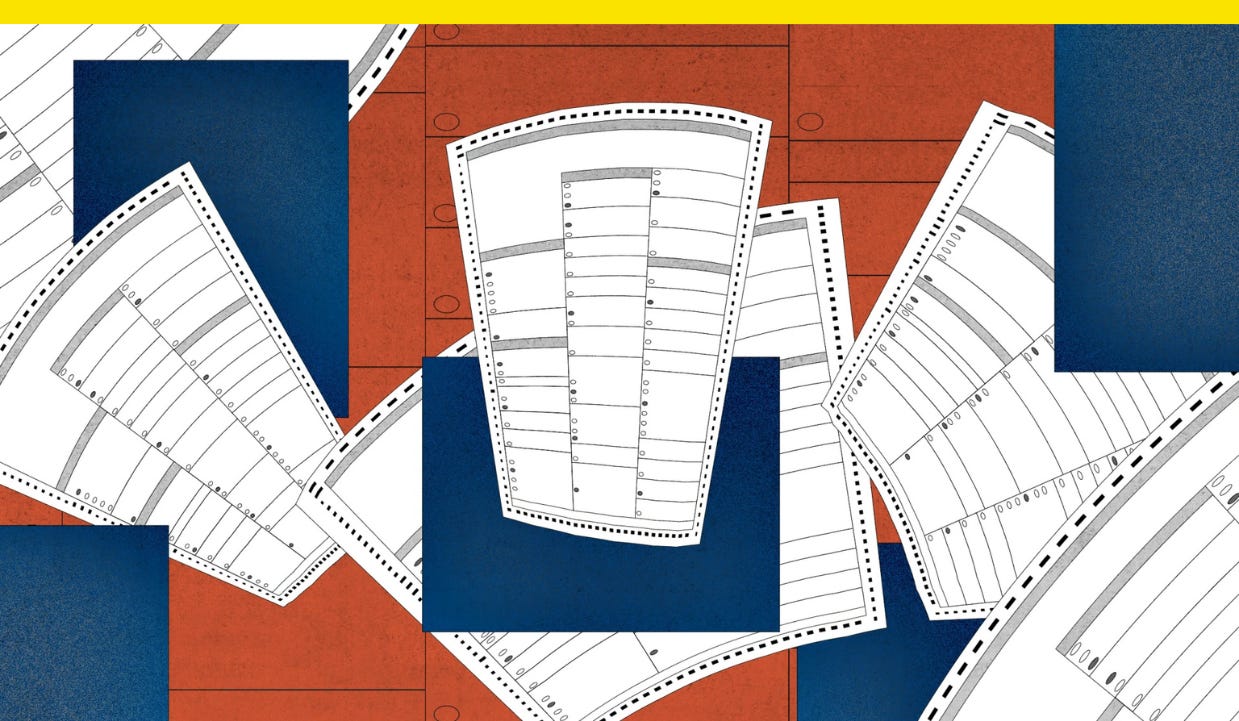
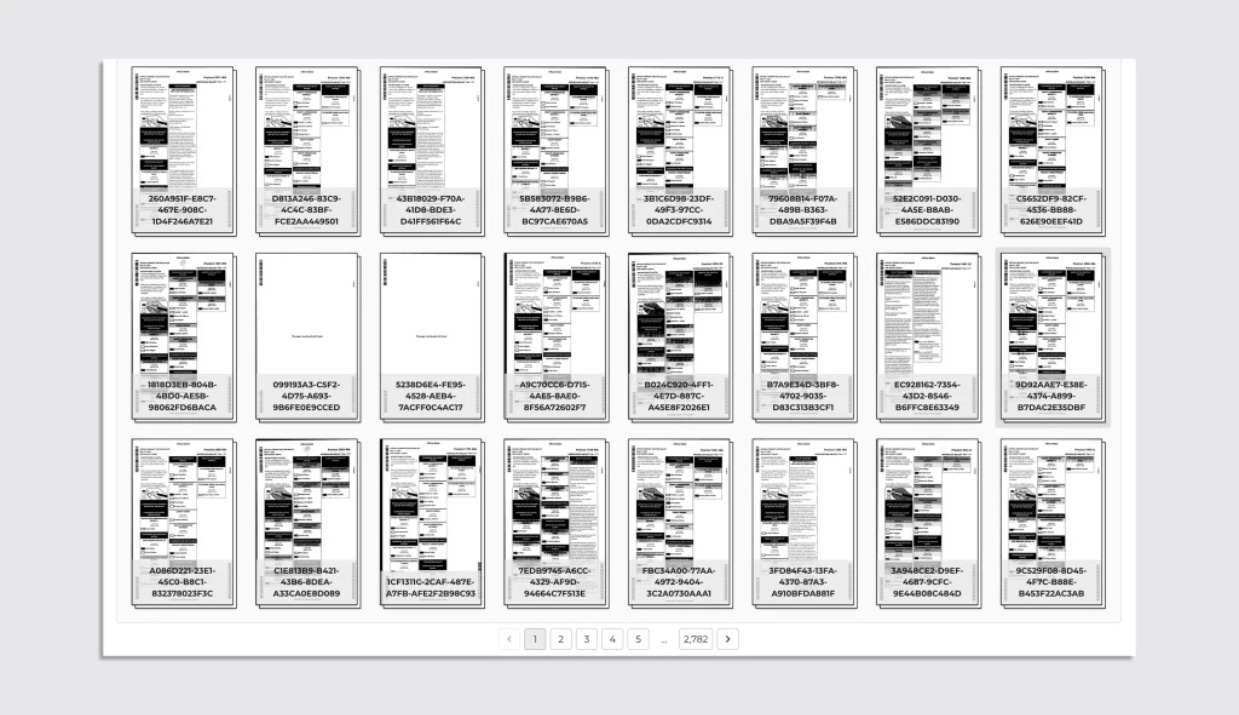
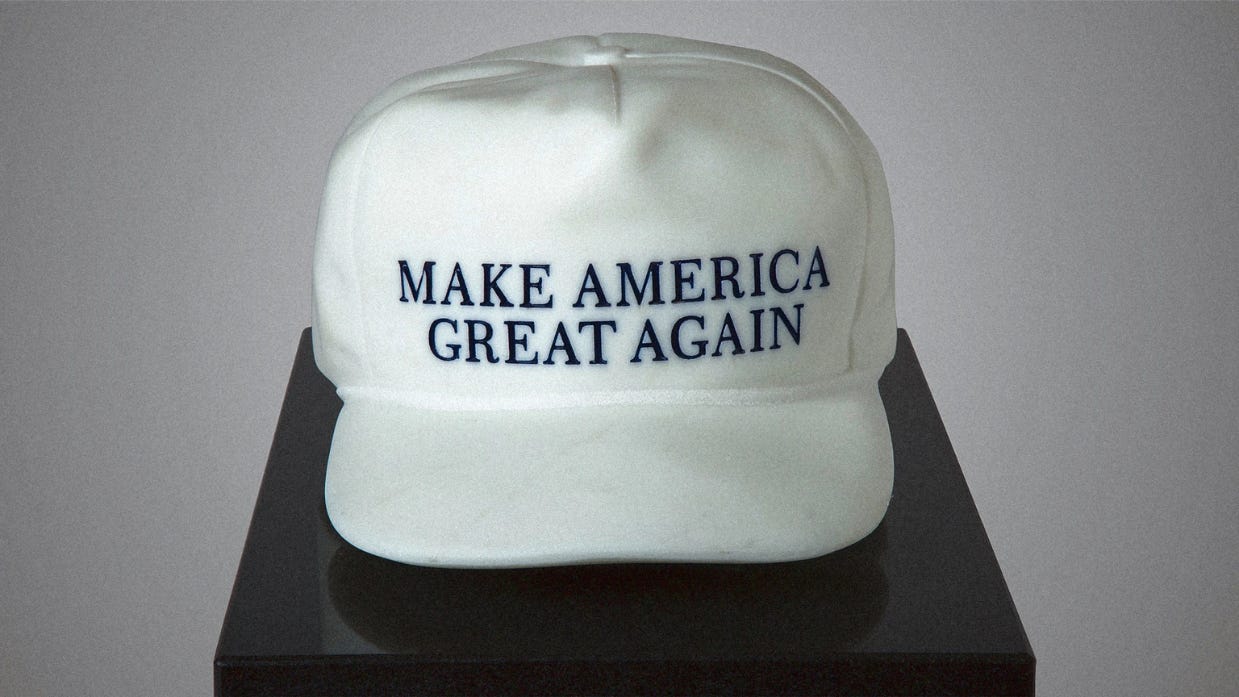
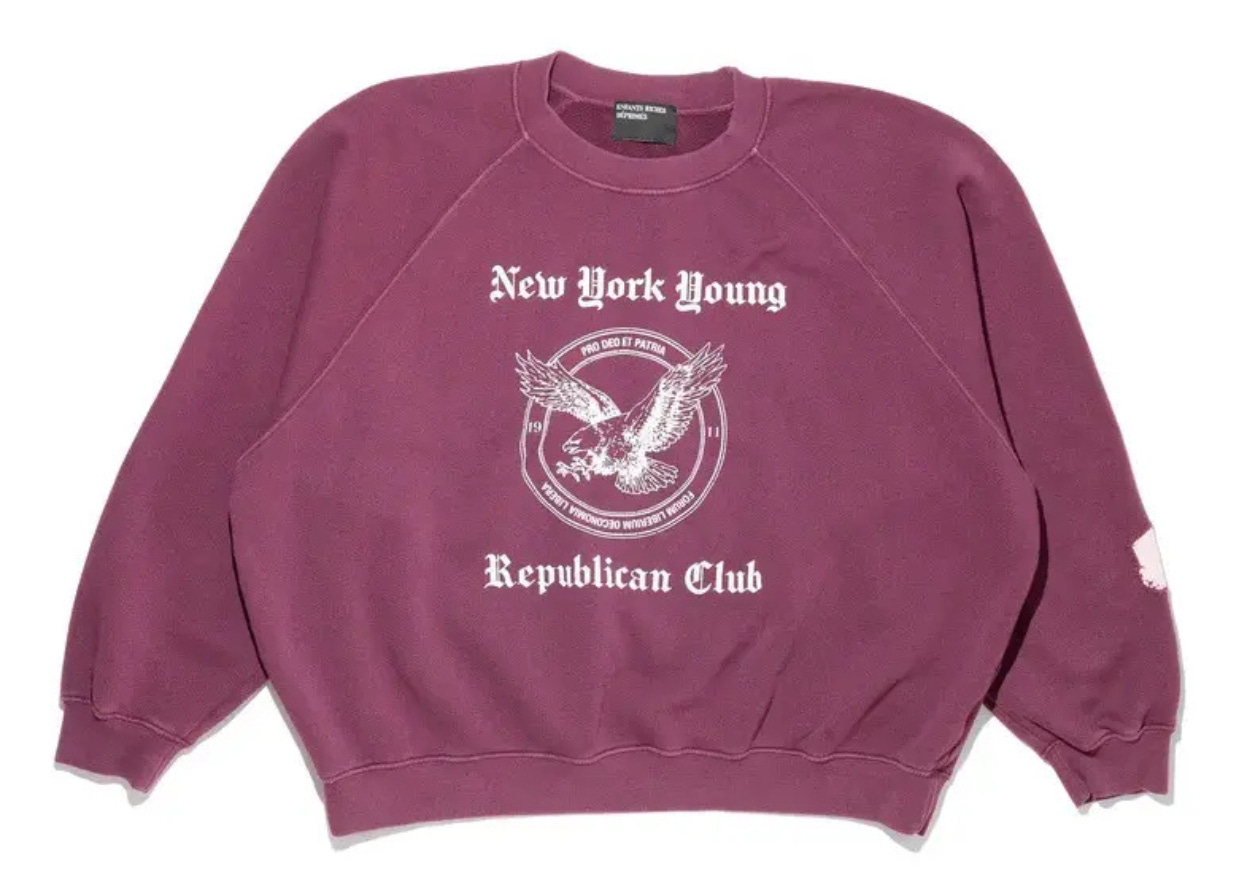


YES WE CAN!
Yeah, you sure friggon did.